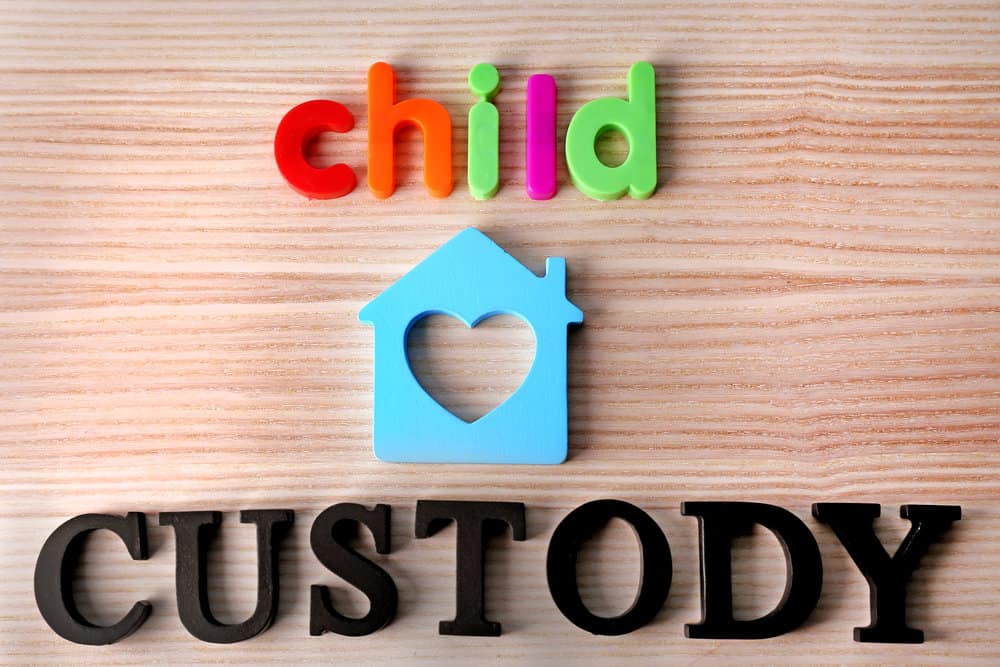Filing a police report for a custody violation is a serious matter, and knowing how to navigate the process for the best possible outcome is important. Custody violations occur when one parent interferes with the other parent’s court-ordered custody or visitation rights. This can include refusing to return a child at the end of a visitation period, denying visitation altogether, or abducting the child.
To address this issue, it’s essential to understand the role of law enforcement and the proper procedures for filing a police report. These steps can vary depending on the jurisdiction, so familiarizing oneself with local laws and regulations is critical. Legal considerations and consequences should also be considered, including potential penalties for violating the custody agreement or court order. Understanding how to address them efficiently in emergent situations may help protect the child and ensure their well-being.
Key Takeaways
- Familiarity with local laws and procedures is crucial for filing a police report for custody violations.
- Legal consequences should be considered when dealing with custody violations.
- Handling emergencies efficiently is essential for the child’s welfare and well-being.
Understanding Custody Violation
Custody violation occurs when one parent disobeys the terms of a custody order. A custody order is a legal document issued by a court outlining the responsibilities and rights of both parents regarding their children. The order aims to ensure the well-being and stability of the children involved.
In cases of custody violation, the affected parent needs to consider filing a police report. This can serve as documentation of the incident and help resolve the issue. Remember that custody laws vary by location, so consulting with a legal professional may be beneficial in understanding the specific laws and consequences in your area.
Custody violations may include a parent withholding visitation, failing to return the child at the agreed-upon time, or interfering with the custodial parent’s rights. These violations affect the parents and can negatively impact the children, causing emotional distress and disrupting their routines.
To file a report for a custody violation, the parent needs to provide the police with a copy of the custody order and any relevant documentation. This may include communication between the parents, witnesses who can confirm the violation, and other evidence supporting the claim.
Parents must understand the importance of adhering to the custody order, as violations may lead to changes in custody arrangements or legal consequences. By respecting the court-ordered guidelines and promptly addressing any violation, parents can work towards creating a stable, supportive environment for their children.
Role of Law Enforcement
In cases of custody violation, law enforcement plays a crucial role in ensuring the safety and well-being of the involved child or children. Local police and other law enforcement agencies work in tandem to address these violations and uphold the terms of the custody agreement.
When a parent or guardian suspects a custody violation, their first step should be to file a police report. Contacting the local police department is essential as they are the primary responding agency. The police will gather information about the incident and document the violation for both legal and investigative purposes.
After filing the initial report, law enforcement may locate the non-compliant parent and child. They might sometimes collaborate with other law enforcement agencies, particularly if the violator has crossed state lines or jurisdictional boundaries. The primary objective is to ensure the child’s safety and return them to the rightful custodian as soon as possible.
Additionally, law enforcement agencies may assist in gathering evidence to support potential legal action against the violator. This could include documentation, surveillance footage, or witness statements proving the custody breach. The reporting parent or guardian must retain this information as it can be instrumental in any subsequent legal proceedings.
In summary, the role of law enforcement in custody violation cases is multifaceted and vital. Their primary objectives are to protect the child, enforce custody agreements, and aid in any necessary investigations. Filing a police report is a crucial step for the affected parent to initiate support from law enforcement and potentially seek legal remedies.
Procedure for Filing a Police Report
Filing a police report for a custody violation is necessary to ensure the child’s safety and enforce the legal custody agreement. The process can be relatively simple, provided the proper documentation and witnesses are on hand.
First and foremost, gather all relevant documentation of the custody agreement. This may include court orders, parenting plans, visitation schedules, and any additional correspondence illustrating the violation. Having this information readily available will make filing the report much smoother.
When approaching the police department, be prepared to provide personal identification, such as a driver’s license or passport. Additionally, it’s essential to be able to describe the circumstances surrounding the custody violation. Explain what happened, when, and where, and identify the people involved, including witnesses.
It is important to remain calm and composed when speaking with the police. A confident and knowledgeable demeanor will help the officer better understand the situation and take the necessary action. Providing any witnesses’ names and contact information can also strengthen the claim’s credibility.
After filing the report, it is recommended to retain a record for personal reference and possible future legal proceedings. The police may follow up on the report and take appropriate action, depending on the nature and severity of the custody violation.
Remember, filing a police report is essential to protecting one’s rights as a parent and ensuring the well-being of the child involved. By following the proper procedure and providing the required information, individuals can effectively address custody violations and navigate the legal complexities of these situations.

Legal Considerations and Consequences
When dealing with a custody violation, it’s essential to understand the legal considerations and consequences that could arise. This section will discuss family court involvement, jail time, and other penalties that may result from such violations.
Family Court Involvement
In cases where a parent violates a court-ordered custody agreement, the family court is likely to become involved. The aggrieved parent can file a motion for contempt of court or request a modification of the existing custody order. Depending on the nature and severity of the violation, the court may impose penalties ranging from a stern warning to changes in custody arrangements.
Family court judges often prioritize the child’s best interests when making decisions, so any evidence should focus on how the violation impacts the child’s well-being. Possible outcomes include adjustments to the custody schedule, mandates for co-parenting classes, or restrictions on the violating parent’s contact with the child.
Jail Time
In some cases, parents who habitually or egregiously violate court-ordered custody for health and safety or regular parenting time may face criminal consequences, including jail time. If a violation amounts to parental kidnapping, this crime can result in more severe penalties. State laws vary regarding the specific criminal charges associated with custody violations, but many jurisdictions consider it a misdemeanor or felony, depending on the circumstances.
Repeat offenders, or those who engage in high-risk behaviors like child abduction, may face stiffer penalties, including longer jail sentences, supervised visitation, or even loss of custody rights.
Other Penalties
Besides family court involvement and potential jail time, there are other penalties for custody violations. Some of these consequences include:
- Fines: Courts often impose fines on parents found in contempt of the custody order, which may vary depending on the state and the severity of the violation.
- Court-ordered mediation: In some cases, the court may require the parents to participate in mediation to facilitate better communication, resolve disputes, and create a more harmonious co-parenting environment.
- Loss or suspension of parental rights: If the custody violation significantly impacts the child’s wellbeing, the court may temporarily or permanently suspend the violating parent’s parental rights.
Understanding these legal considerations and consequences can help parents navigate a custody violation situation and ensure they exercise their legal options.
Addressing Emergency Situations
In cases where there is immediate danger to a child’s safety or when a child abduction is suspected, it’s crucial to take appropriate steps for their protection. Time is of the essence in these situations, and acting promptly can make a significant difference in the child’s well-being.
First, in any emergency involving a child’s safety, contact local law enforcement by dialing the emergency number. Provide as much information as possible, including the child’s name, description, last known location, and details about the custody violator. If possible, note any vehicles or distinguishing characteristics that may be relevant.
After contacting the police, it may be helpful to inform the other parent or legal guardian about the situation and provide updates as information becomes available. Establishing clear communication in these moments ensures both parties know the circumstances and can work together to ensure the child’s safety.
In case of suspected child abduction, contact the National Center for Missing & Exploited Children (NCMEC) by calling their 24-hour hotline. This organization provides assistance and resources, such as distributing Amber Alerts, to aid in the recovery of missing children. Working with law enforcement and organizations like the NCMEC is essential to maximize the chances of locating the child swiftly and safely.
While emergencies involving custody violations are distressing, following these steps and maintaining a calm demeanor is crucial. By collaborating with law enforcement and support organizations, efforts can be focused on recovering the child and addressing custody violations appropriately.

The Role of Legal Counsel
Hiring an attorney or lawyer with expertise in family law can greatly impact the outcome of a custody violation case. Legal counsel plays a crucial role in advising and guiding the client throughout the process, ensuring that their rights are protected and that they understand the implications and potential consequences of filing a police report for a custody violation.
A family law attorney is well-versed in navigating the complexities of custody agreements and violation disputes. They can assess the situation and advise the client on the best action. Sometimes, contacting law enforcement may not be the most effective way to resolve the issue. A skilled attorney can propose alternative solutions to prevent further violations and protect the client’s interests.
In cases where filing a police report is necessary, a family law attorney can provide assistance and guidance on the proper protocol. This may include gathering documentation, drafting affidavits, or providing compelling evidence to law enforcement. By having legal counsel involved in the process, a client ensures that their report is thorough and accurate.
Furthermore, legal counsel can communicate on behalf of their client to other parties involved in the case, such as law enforcement and the opposing party. This helps to avoid conflict and ensures that the client’s message and intentions are conveyed accurately.
In conclusion, involving legal counsel when filing a police report for a custody violation is beneficial in ensuring that the client’s rights are protected and that the appropriate steps are taken to resolve the issue effectively. A family law attorney provides invaluable guidance and support to help navigate this challenging process.
Dealing with Parental Kidnapping
Prevention Measures
Preventing parental kidnapping is crucial to avoid the turmoil and stress it causes for the child and the parent with custody. The following measures can help reduce the risk of a violating parent abducting their child:
- Establish clear custody agreements: Ensure that a legally binding custody agreement is in place to detail the rights and obligations of each parent.
- Keep updated records: Maintain accurate and up-to-date records of the child’s passport, birth certificate, and other essential documents.
- Communicate with the other parent: Foster clear and open communication with the violating parent and address any issues.
- Notify schools and caregivers: Inform your child’s school and caregivers about the custody agreement to avoid unauthorized pickups by the violating parent.
Taking Legal Action
If a parent believes the violating parent has abducted their child, swift legal action must be taken to ensure the child’s safety:
- File a police report: Contact the local authorities and provide the necessary information about the abduction, including the violating parent’s personal details and vehicle information.
- Contact a family law attorney: Seek professional legal counsel to help navigate the complexities of custody violations and parental kidnapping cases.
- Petition for emergency custody: In some jurisdictions, it is possible to file for emergency custody to protect the child and help ensure their swift return.
- Work with law enforcement: Collaborate with authorities to locate and safely return the child to the custodial parent.
By taking these actions, the custodial parent can address parental kidnapping and work towards resolving custody violations. Implementing preventative measures and being ready to take legal action are essential to combating this challenging issue.
Custody Agreements and Court Orders
A custody agreement is a legally binding document that outlines a child’s care and decision-making responsibilities between separated or divorced parents. Following the terms set by the custody agreement is essential, as violating these terms may result in legal consequences. On the other hand, a family court order is a directive issued by a judge and must be adhered to by all parties involved. In custody disputes, the court may issue an order defining the specific arrangements for the child’s custody and visitation.
When a party violates a custody agreement or court order, it is crucial to document the infraction and gather evidence. This may include collecting records of missed visits, text messages, or witness statements. Once the evidence is gathered, the affected party should contact a family law attorney to discuss their options for rectifying the situation.
Sometimes, the party who violated the custody agreement or court order may face legal consequences. These consequences may include fines, changes to the custody agreement, or even criminal charges in more severe cases. Understanding the potential consequences of a custody violation and the steps required to enforce the custody agreement or court order is important.
Taking appropriate action against a custody violation is essential to ensure the stability and well-being of the child involved. Proper documentation and legal representation will be important in addressing any breaches of custody agreements or court orders.

The Emotional Impact on Children
Children who experience custody violations may undergo a wide range of emotional reactions. These reactions can manifest as anxiety, depression, fear, and confusion. They might also exhibit behavioral changes, such as withdrawal from social activities, changes in sleep patterns, or academic challenges.
The feeling of being forcibly separated from one parent can cause emotional distress and trauma in children. They may feel caught in the middle, torn between their love for both parents. This feeling of being stuck in the middle can result in losing stability and security, an essential component of a child’s emotional development.
In some cases, custody violations may expose children to abusive situations or environments. This can include physical, emotional, or psychological abuse. Exposure to these harmful circumstances may lead to long-lasting emotional scars and an increased vulnerability to mental health disorders.
One crucial factor in mitigating the emotional impact of custody violations on children is how both parents approach the situation. Open communication, mutual understanding, and respect for the child’s needs and emotions can help create a supportive environment, making it easier for children to navigate the complexities and emotional challenges of custody disputes.
Parents must prioritize their child’s emotional well-being and seek professional guidance to address any manifestations of emotional distress after a custody violation.
Protecting Personal Information
When filing a police report for a custody violation, it is essential to safeguard your personal information to prevent identity theft and other forms of theft. Sharing sensitive data with unauthorized individuals might put you at risk and potentially provide suspects with the means to commit further harm.
Firstly, provide only necessary personal information when filing the report. This typically includes your full name, contact information, and the details of the violation. Avoid providing extra details that are not directly related to the case, such as financial or medical information.
Furthermore, only share your information with authorized personnel, such as police officers or legal representatives. Be cautious when discussing your situation with others, even close friends or family, as this might unintentionally divulge critical information to unintended recipients. Additionally, be wary when receiving unsolicited phone calls or emails from individuals claiming to be involved in the case; always verify their identity and affiliation before sharing any details.
Lastly, be mindful of the documents and digital records related to your case. Store them securely, and dispose of them properly when no longer needed. Shredding paper documents and clearing digital files from your devices can help protect your personal information from falling into the wrong hands.
By following these precautions, you can help ensure the security of your personal information while addressing the issue of custody violation.


